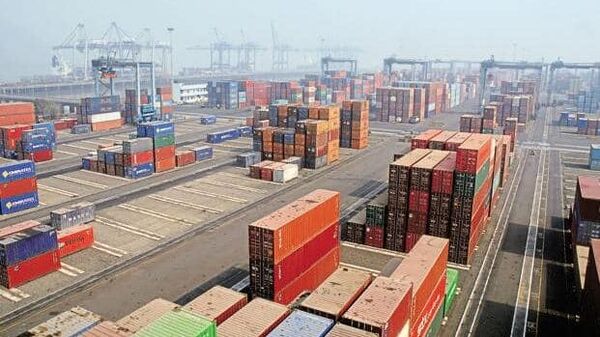As the eighth round of India-UK free trade agreement (FTA) discussions approaches, the question on everyone’s mind is how close are we to the endgame? The recent incident of pro-Khalistan protests at the Indian embassy in the UK has raised tensions in bilateral relations between the two countries. Even in the best of times, India is known to be a cautious trading partner. Not only do we have vested interests in protecting key domestic sectors, we are also cognizant of our growing geopolitical stature. The proposed trade deal with the UK presents an exciting opportunity on both these fronts, but bargaining on political ideologies must not get in the way.
Economically, a trade deal between the two nations makes sense. Both countries are top exporters and importers of merchandise and services. Through the agreement, the UK aims to gain wider access to the Indian market for its export items such as Scotch whisky, premium cars and legal services. India is the third-largest services exporter to the UK, and a trade deal would only widen market access for Indian service firms. Further, the two countries trade in similar but distinct products. Allowing freer import of luxury cars does not present any significant threat to domestic car manufacturers, which primarily cater to middle-class buyers. In 2018, the top export industry between the UK and India was ‘computer programming, consultancy, and related activities’ for both countries. This further suggests that the two countries have different and possibly complementary capabilities within the same industry. Thus, fears of losing jobs common to such pacts are unlikely to materialize with this FTA.
If the India-UAE Comprehensive Economic Partnership Agreement (CEPA) is any indication, India is likely to sign a trade deal that would lower tariffs on key products, subject to compliance with rules of origin. The UK may insist on relaxed regulations on customs procedures and easier regulations on doing business. This may have wider benefits for India, as it will make the country an attractive investment destination for other developed nations too. After the successful partnership between Oxford AstraZeneca and Serum Institute of India during the covid pandemic, several multinationals are keen on exploring similar collaborative opportunities between the two countries. A trade deal is likely to boost the drugs and pharmaceutical industries of both, provided New Delhi and London arrive at a mutually acceptable recognition of intellectual property rights.
While a trade deal expands the current comparative advantages of the two signing countries, it would be short-sighted to not prepare for the Indian economy’s expanding needs. With the New Education Policy (NEP), there is a greater focus on students getting work experience and technical training while pursuing undergraduate degrees. India should negotiate better terms for students to get such training in the UK. While London is opposed to opening borders for migrants, it is open to allowing more students temporary work visas. India would gain immensely by facilitating easier terms for its students to get international exposure. Relatedly, the two countries need to recognize the educational qualifications of their counterparts. The Skill India programme could benefit from the UK framework of Vocational Technical Courses. In general, an agreement on the mutual recognition of qualifications (beyond that of IITs and IIMs) would help India-educated workers to become globally competitive. Given the relative sizes of each market and possible differences in professional practices, this will allow greater movement of skilled workers between both economies.
Green technology presents another avenue for mutual gains between India and the UK. The Indian government has launched several programmes to boost domestic tourism, such as the Ganga Vilas Cruise, Mumbai-Gandhinagar Vista Dome coaches and the Golden Chariot. However, with increasing tourism in Indian natural hotspots comes a need for environment-friendly initiatives to reduce waste generation in our rivers and mountains. This presents an opportunity for investment in green technology, such as low-carbon emitting turbojets and turbo-propellers, and developing a network for recycling collections.
The recently announced Foreign Trade Policy 2023 (FTP 2023) encourages exports of capital goods and speeds up the processing of export-related applications. However, the policy’s expansion of trade in rupees and shift to remissions-based incentives may have uncertain effects. Trade in rupees would allow more trade with India, particularly for countries with limited dollar reserves. However, such trade with smaller nations may not give India access to high-quality or more cost-efficient products. Similarly, pushing exports via tax and duty exemptions depends on reliable record-keeping and accounting practices among businesses. If the system is opaque, it may encourage more under-the-table deals than exports. Therefore, trade deals with developed nations still make sense.
The UK and India are at a juncture where both countries would benefit from access to international markets and gain from economies of scale. Both countries have large markets, would like a trade deal welcomed by their citizens, and would also like lower dependence on manufactured goods from China. Additionally, the two countries have comparative advantages in complementary goods and services. An FTA that incorporates each other’s strengths would be a win-win outcome for both.
Anuradha Saha is assistant professor of economics, Ashoka University.
Download The Mint News App to get Daily Market Updates.
More
Less
#Economic #winds #favour #IndiaUK #trade #agreement
